Packaging EPR in Germany explained: How online sellers get EPR-compliant
- 10 August 2022
E-commerce retailers from all countries who sell in Germany must abide by the German packaging law. To become compliant and receive your EPR number you need to register at the relevant authority and take further measures.
The fines for not obeying the German Packaging Act are high. Thus, in order to sell successfully in Germany there is no way around fulfilling your recycling obligations for the packaging you bring into circulation in Germany.
In this article we cover what the German Packaging Act is exactly, and how you can easily fulfil the legal obligations of your e-commerce business.
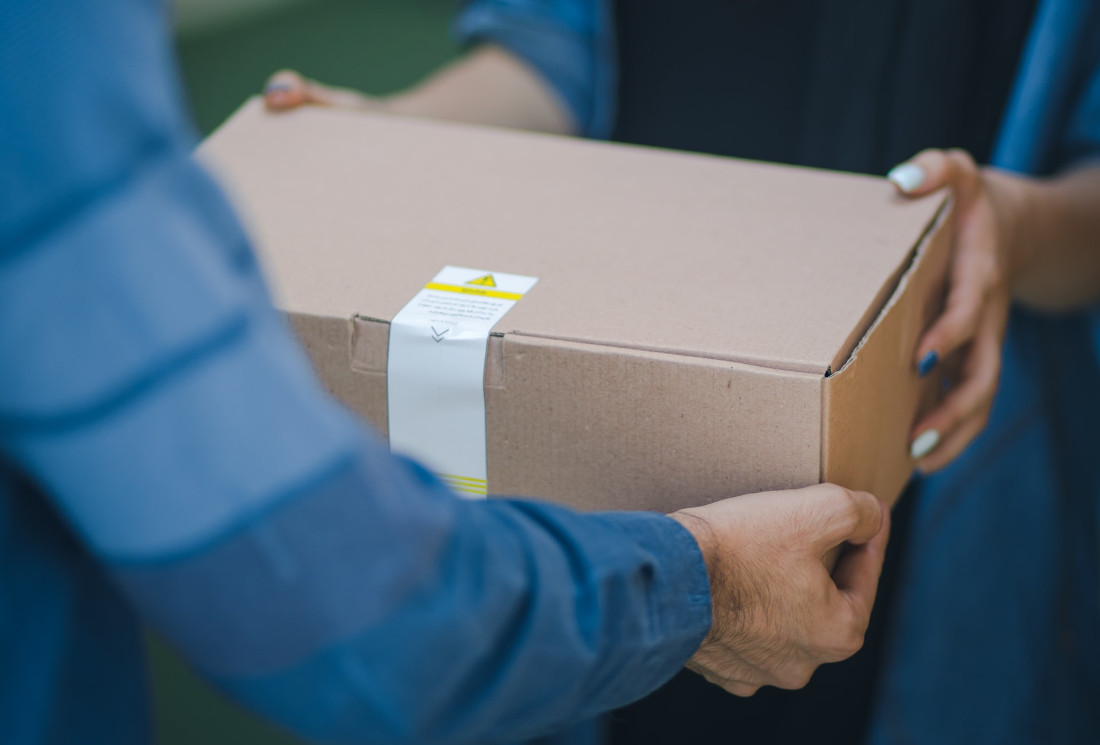
What is EPR for packaging?
EPR stands for Extended Producer Responsibility and refers to the concept that companies that place goods on the market need to take responsibility for the recycling of the packages.
In Europe the Extended Producer Responsibility has been legally obligatory since the introduction of the European Packaging Directive 94/62/EC. Each country implemented this directive differently in their national laws.
In Germany, the recycling obligations are defined in the Packaging Act (VerpackG).
What is packaging EPR in Germany about?
The German Packaging Act has been in force since 2019. Its aim is to increase the recycling rates of the packaging waste and to make the economy more circular.
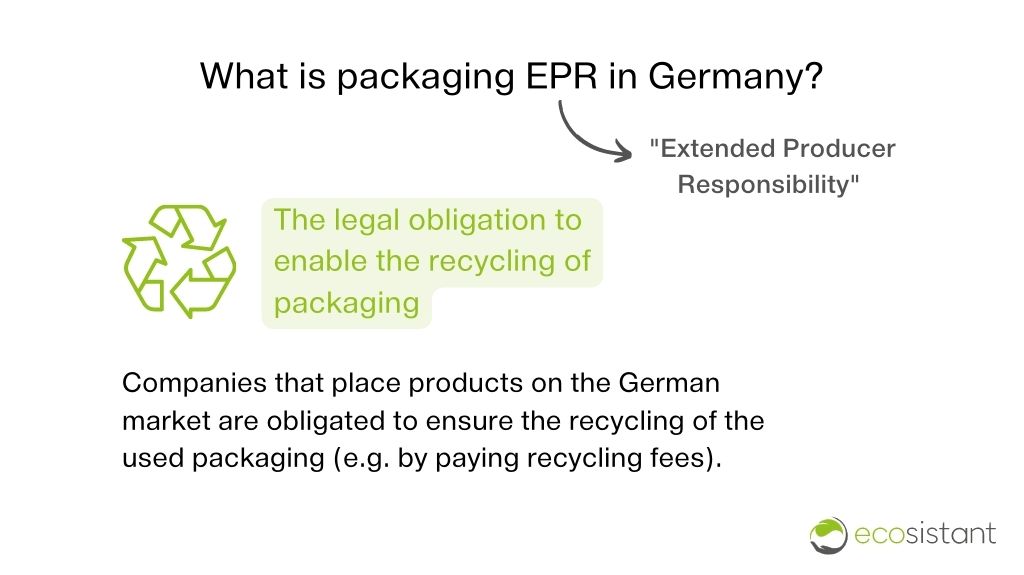
The law dictates that everyone who sells packaged products to end customers in Germany has the obligation to ensure the recycling of their products packages.
This includes registering at the local authorities as well as licencing the packaging. Licencing packaging includes paying fees to a dual system which then uses that money to recycle all the packaging in their facilities (after the end customers disposed of them).
Who is affected by the German Packaging Act?
The German Packaging Act does not only affect German companies. Instead, all companies that ship packaged goods to German end customers are affected.
This is the case because not the source of the packaging is the relevant factor. Instead, it is related to the fact that this packaging eventually turns to waste at the German end consumer and thus has to be recycled in Germany.
So, if you sell goods in Germany that have packaging which will end up as household waste, chances are high that you need to adhere to the law.
However, this also depends on the exact type of packaging you use (there are exceptions) and who actually fills that packaging. We will discuss this in more detail below.
What types of packaging are there?
There are generally three different kinds of B2C packaging that are used by online shops:
Product packaging
Product or sales packaging refers to the packaging that the product is sold in and which contains the relevant product information.
Examples include:
- Cardboard boxes
- Plastic packaging
- Glass bottles
It can also be a combination of more than one product packages. For example, a facial cream often comes in a plastic tube or glass jar in conjunction with a cardboard box. All packages need to be considered.
Shipment packaging
Shipment packaging is additional packaging that is used to ensure safe transport of the goods.
This includes:
- Shipping cartons
- Cushioning material
- Filling material
- Adhesive tape
- Envelopes
Returnable packaging
Returnable packaging is a sort of packaging that does not stay with the end consumer but is returned to the seller. The most common form are returnable shipping boxes.
Which types of packaging need to be licenced?
Generally, only product and shipment packaging need to be licenced. Returnable packaging mostly does not need to be licenced.
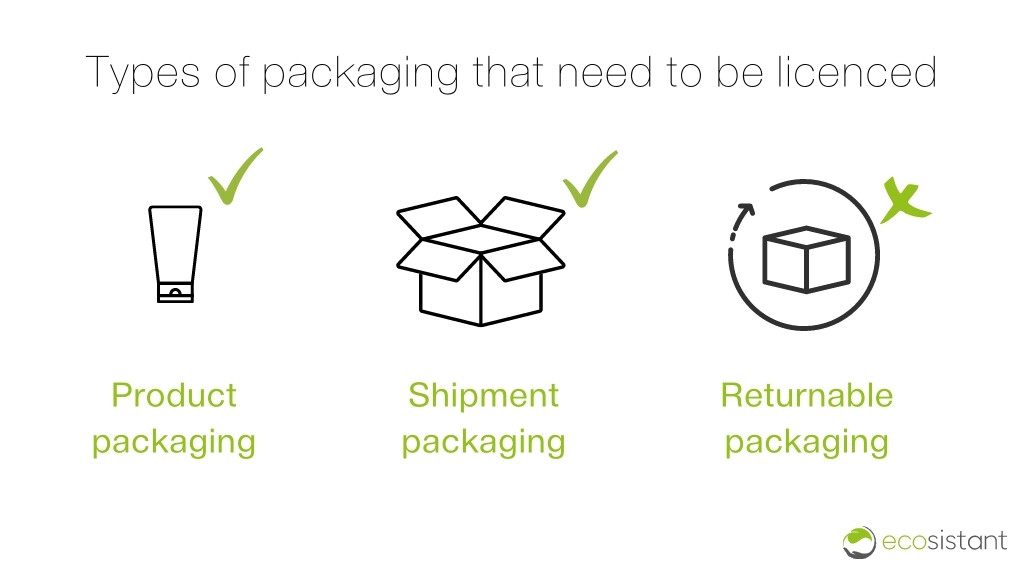
Returnable packaging is excluded from the law as these packages are returned and reused and thus do not count as consumer waste. However, starting in July 2022 these returnable packages need to be registered at the LUCID register. A packaging licence is still not required though.
Am I obligated to licence my packaging?
Whether or not you need to licence your product and shipment packaging depends on multiple factors.
Do you have to licence product or shipment packaging?
Which kind of packaging you need to licence depends on which kinds you use and whether you package it yourself.
Generally speaking, the company that packages the product is responsible for the licencing of the packaging.
For product packaging this means, that if you use product packaging and fill your products into your product packaging yourself (e.g. into cardboard boxes with the product information, plastic tubes, glass bottles), then you are obligated to licence it in Germany.
The same applies when a company has a product packaged in their name: It needs to licence it itself.
For shipment packaging, a similar regulation holds: If you put your products into shipment packaging (shipping cartons, cushioning material etc.) and send it off yourself, you are responsible for licencing the packaging in Germany.
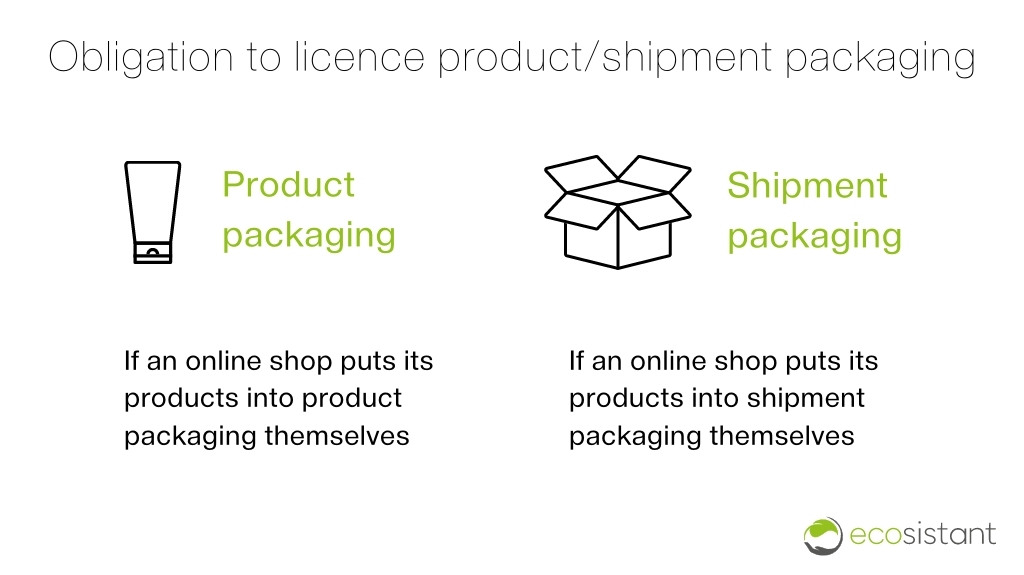
In case you sell products without product packaging (just in the shipment packaging), you will only have to licence the shipment packaging.
Another case in which you only need to licence the shipment packaging, is when you buy your products from a producer or retailer in Germany and then put it into the shipment packaging yourself.
In this case, the supplier is responsible for the licencing of the product packaging as they package and sell those directly in Germany. In general, the obligations are on the party that “first introduces packaging on the German market” which later ends up at the consumers’ waste.
When do you have to licence both product and shipment packaging?
In many cases online retailers need to licence both their product and their shipment packaging. For once, this happens when your online shop is located in Germany and you simply pack both product and shipment packaging yourself.
There are, however, a few exceptions in which you do not package your product and/or shipment packaging yourself, but still need to licence it. This happens when:
- You sell to Germany from abroad or use a fulfilment service like Amazon FBA
- You import your products from abroad (e.g. from China) and package them yourself in Germany
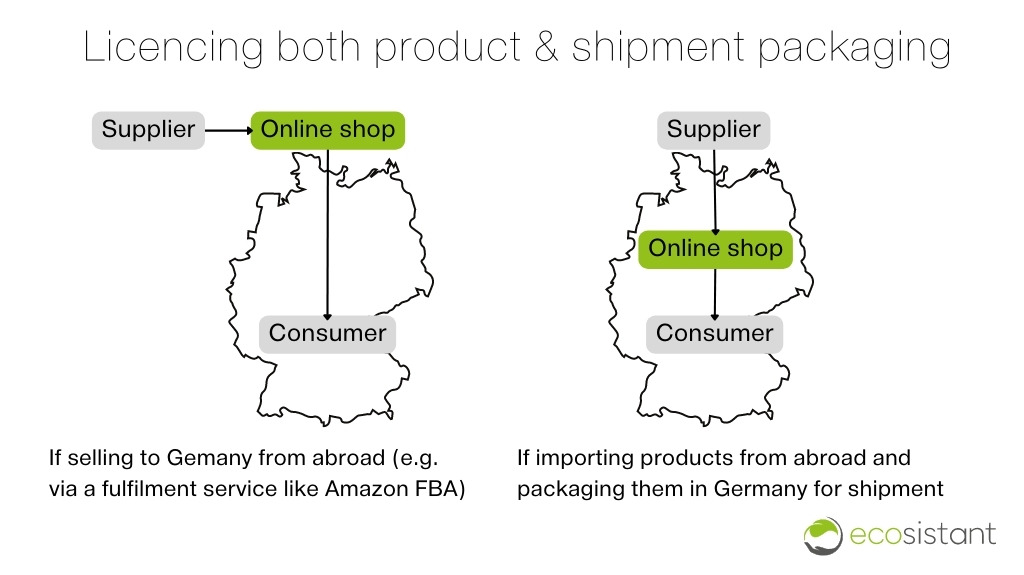
When foreign goods are shipped into Germany, the fact who is responsible of the goods when they cross the border determines who must licence them. Mostly, the importer who actively brings the goods into Germany is the responsible party. Thus, if you import products, you need to licence them.
Foreign companies, who sell directly to German consumers are therefore also affected and need to licence their packaging.
If you use a drop shipping provider or an external fulfilment service whos’ company name, address or brand is visible on the packaging (e.g. Amazon FBA shipments), you have to licence your packaging as well.
This is especially important to keep in mind as since 2022 Amazon Germany and France exclude retailers who do not comply with the packaging laws and cannot provide a EPR number.
How do I find my packaging EPR number for Germany?
In order to be allowed to sell on Amazon and Co., it is obligatory to upload your EPR number for Germany starting July 2022. Doing this, the marketplaces make sure that you can proof that you are compliant if you sell on their platform.
To obtain your EPR number you must register with the relevant EPR registry of the country in question. In the case of Germany this is the LUCID Packaging Register at the Central Agency Packaging Register (ZVSR).
There you receive the so-called LUCID number which is the EPR number for packaging in Germany.
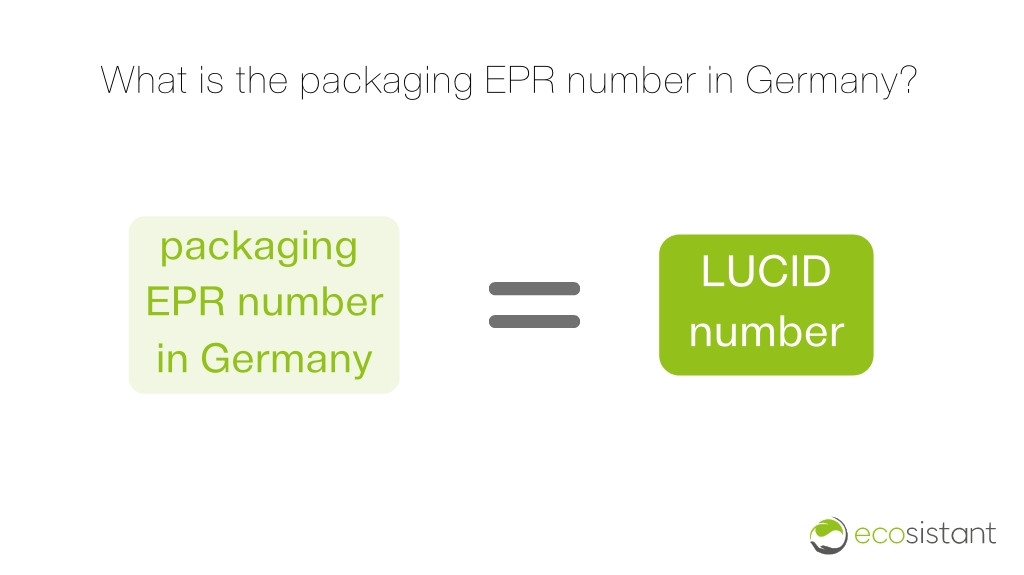
The LUCID number you will receive once you registered at the LUCID Packaging Register.
Note: For electrical devices and batteries you need other EPR numbers in Germany (WEEE-Reg.-Nr. and Batt-Reg.-Nr.) as the LUCID registration number is only relevant for packaging. Just like with the number for the packaging, you receive them when registering with the respective authority (Stiftung Ear).
But registering and receiving the EPR number does not make you compliant with the German Packaging Act yet. There are more steps involved.
What do I need to do to become compliant?
There are three steps you need to take to become compliant with the German Packaging Act when selling in Germany: registration, system participation and data reporting.
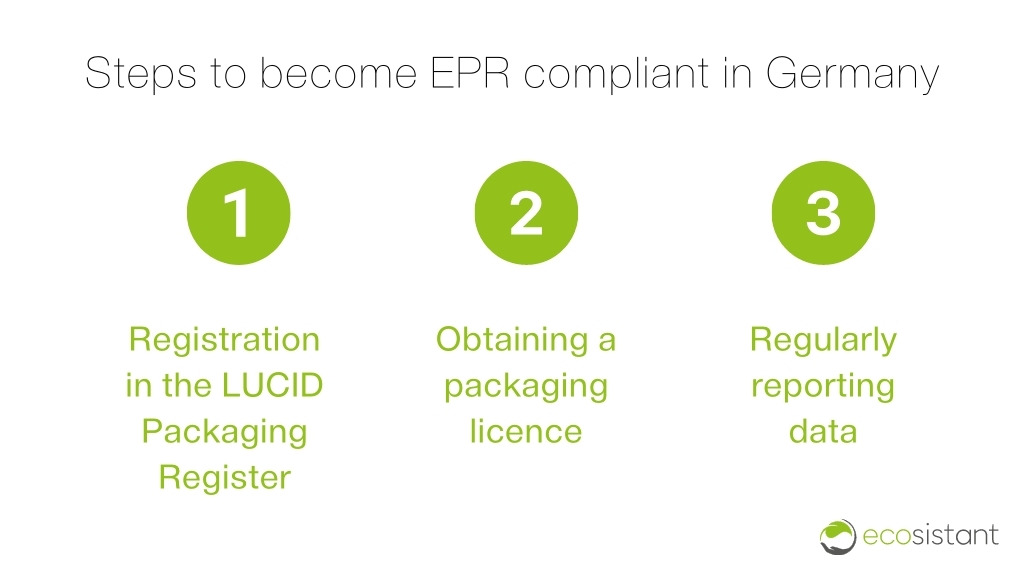
1)EPR Registration in Germany (LUCID Packaging Register)
Before you even start putting products on the market, you need to register at the German packaging register called LUCID. The registration itself is done quickly and does not require any fees.
2)Obtaining a Packaging License
The next step is to obtain a Packaging Licence. For this licence you need to pay a fee, which is used to finance the recycling of packaging in Germany.
The exact cost depends on your annual packaging quantities. You need to calculate how many kilograms of paper, plastics, glass etc. are used for your packaging each year.
The authorities where you can licence your packaging and pay that fee are the German “Dual Systems”.
You can usually expect to pay a few cents per kilogram waste. As these systems do however take different amounts of fees, it is advisable to use a (digital) consultation service like that of ecosistant to make sure you are getting the best deal for your specific online shop.
3)Regularly reporting your data
Lastly, you need to regularly report the amount of packaging you use each year. The data report in LUCID must be equal the amount of packaging you licensed with a dual system.
What amendments to the Packaging Act will come into force this year and beyond?
As Amazon declared, they will not allow retailers to sell in Germany anymore if they cannot provide an EPR-number to Amazon as a sign of their compliance to the Germany Packaging Act. In the next few years there will be some additional changes of the German Packaging Act you should be aware of.
Here is a brief overview of the most important changes:
Since 2021, non-German companies can assign an “authorized representative” who can fulfil all the responsibilities for the foreign company.
Since January 2022, new regulations for the deposit of plastic beverage bottles and beverage cans exist.
From July 2022, some packaging categories that did not have to be registered before, do need to be registered at the LUCID register. However, a packaging licence is not required. This includes the following kinds of packaging:
- (B2B) transport packaging
- commercial packaging
- returnable packaging
- packaging that contains dangerous substances or is an endangerment for the recycling process
Furthermore, B2B retailers are obligated to take back empty packaging and inform their customers about this possibility.
Lastly, as mentioned before, from July 2022, all sellers who use fulfilment service providers like Amazon and Ebay, also need to register with the LUCID register and obtain a packaging licence from one of the dual systems. If you cannot provide an EPR-number to Amazon and co., you risk a ban on distribution.
From January 2023, trade and gastronomy that operate on an area with more than 80 square meters, are required to offer reusable packaging besides their disposable options.
And lastly, from 2025, the recycling content of single-use plastic bottles needs to be at least 25%. From 2030, the number will then be raised to at least 30%.
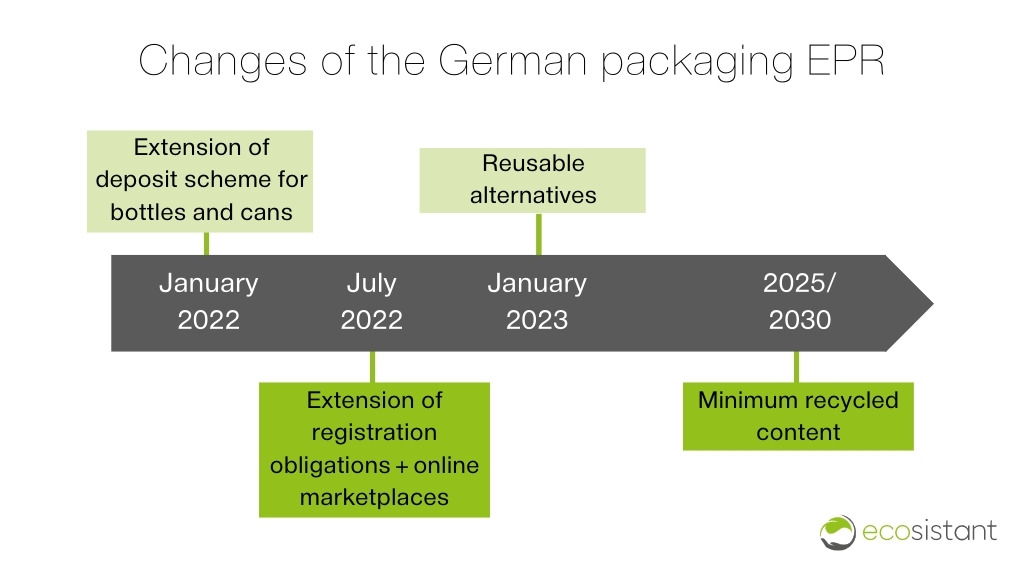
What happens when you do not fulfil your German packaging obligations?
According to § 36 VerpackG, not registering and not licencing of packaging as well as declaring false quantities are punished by a fine of up to 200.000 euros or a ban on distribution.
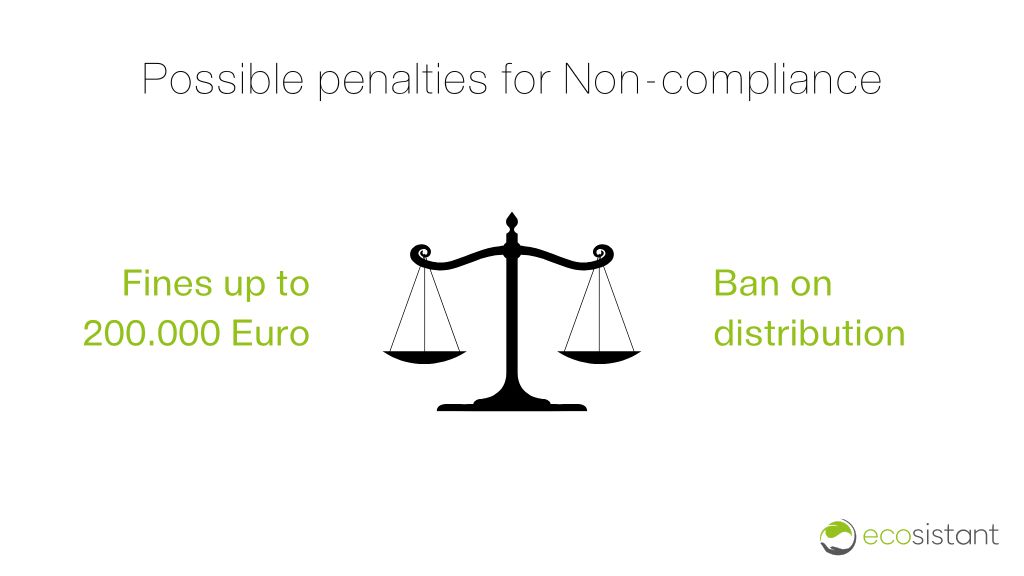
Another reason why one should not postpone registration is that non-compliance is publicly visible and competitors can thus report unregistered traders. This publicly accessible register can be found on the site of the Central Agency Packaging Register (ZSVR). This transparent approach was chosen to ensure fair competition and encourage more traders to act.
EPR and packaging laws in other countries
The EPR regulations do not only apply to Germany but other EU member states as well. Since the EU Packaging Waste Directive was implemented differently in each European country, the country specific packaging laws differ vastly.
This means you must navigate through all the different rules, institutions, and recycling systems when you sell in several European countries. If your online shop offers international shipping, you are automatically obliged to comply with the laws of all the destination countries that you ship to.
As it is almost impossible to research the various recycling obligations in Europe yourself, it is best to use a digital compliance guide or seek personal consultation.